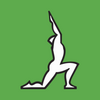Know Thyself
The purpose of athletic competition is to perform your best. A tremendous amount of time, energy
and resources are spent by an athlete pursuing this quest. Each athlete has individual attributes that
allows them to be successful. Also, each athlete has individual deficiencies that hold them back. To be
successful, the athlete must work to their strengths. However to truly reach your potential, it is more
important to know and improve your weaknesses.
As a physiotherapist treating athletes for over 17 years, I have had numerous conversations with
injured athletes about their physical limitations with respect to pain and their injury. We would
discuss asymmetries in their strength, range of motion, strength or stability. More times than not as
we discussed these topics the athlete will comment that I always knew I had trouble with such and
such, or I knew that something wasn’t the same as the other side. It is awesome that the athlete
can self assess or be aware of a problem area or weakness. The problem tends to lie in acting on that
information. The athletes that I am talking with almost always ignore the discomfort, tightness, and
weakness they are feeling and continue training and competing. Even if an athlete isn’t sore enough
to seek treatment there is research that shows their athletic performance will suffer. Their movement
will suffer. Athletes will not compete at their maximum potential because the discomfort, tightness
or weakness they feel will reduce their strength, endurance and/or power. Eventually most will break
down and get injured and start missing their training or sport. Most athletes will comment after
the fact that they are injured that they don’t know when to get assessed and address their issue. It
wasn’t “that” sore or I could still do it if I took anti-inflammatories and/or pain killers (don’t get me
going on that topic) are lines that I hear a lot. I have also talked with coaches about athletes that
don’t move well, take a long time to learn skills that others get easily or always seem to be injured.
These athletes just seem to have a tough time doing the proper movements or skills. Coaches, parents
and athletes alike get frustrated at the athletes apparent inability to get “it”. In some cases these
athletes have poor fundamental movement patterns that are preventing them from performing well.
Proper fundamental movement patterns are the foundation that athletic performance is based upon.
I have personally tested and corrected these types of athletes to witness amazing transformations in
movement and injury reduction.
I believe that every athlete should get their movement patterns assessed whether they have pain or
not. Preferably at the start of their training and then get retested again each season and/or after each
injury. This is a view that is being stated by many informed sports medical professionals. More and
more professional sports teams are doing this every year to protect their investment in their athletes
and to improve their team’s performance. I have heard it being compared to going to the dentist for a
check up. People make appointments to see the dentist to make sure everything is ok with their teeth
and do some preventative cleaning. If something is found they have further dental work to correct the
problem. If it makes sense to do with your teeth (which I believe it does), does it not make sense with
your whole body? There are many reasons to get your movement patterns assessed not the least of
which are;
1. Improve performance
2. Maximize training benefit
3. Maximize your potential
4. Ensure training is not hampering your movement
5. Prevent injuries
The Functional Movement Screen (FMS) is a ranking and grading system that documents movement
patterns key to normal function. By screening these patterns, the FMS readily identifies functional
limitations and symmetries. It consists of 7 movements that are graded from 0 to 3. A pass is 14 (2
on each test) with no asymmetries. The test takes about 20 minutes to complete and you end up with
the Functional Movement Screen Score, which can be used to target problems and track progress. This
scoring system is directly linked to the most beneficial corrective exercises to restore mechanically
sound movement patterns.
Movement is ultimately what defines great athletes. Athletic movement is about human movement.
Make sure that you know that you are moving the best you can. Correct any movement issues to
improve your performance. Recheck your movement often to ensure that competition, training and
injuries have not changed your movement patterns. Know thyself.
